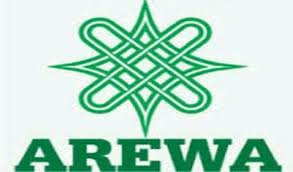Opposition to the implementation of the report of the 2014 National Conference report by the north may not be unconnected with its recommendations that the derivation to oil producing communities as well as other mineral producing communities and the creation of additional state for the south east.
The report had recommended that in the principle of equity and true federalism, an additional state be created for the south east geopolitical zone to bring them at per with other geopolitical zones in the country. The conference believed that increasing derivation to oil producing states will help address the current agitations in the country, while attention to be given to the development of the solid mineral sector as well as attention given to rebuilding areas ravaged by insurgency and other forms of crisis.
The pan northern socio-political Organisation, the Arewa Consultative Forum has consistently expressed its opposition to the implementation of the report, even as the NationL Assembly ask the Executive to officially forward a copy of the report to them for consideration as part of efforts at addressing the growing agitations in the country. In a communique at the end of its meeting recently, the ACF explained that “the North’s opposition to implementation of recommendations of report of the 2014 National Conference is not so much because of any legal consideration, as to its legitimacy, but also because the selection of the conference delegates was skewed against the North”.
However a close study of the report revealed that the conference recommended the fast tracking of the development of solid minerals as well as the rehabilitation and reconstruction of areas ravaged by insurgency and conflict. A copy of the 763 paged report obtained by The Nation was signed by Chairman of the conference and Former Chief Justice of the Federation, Justice Idris Legbo Kutigi, Deputy Chairman and Former External Affairs Minister, Prof. Bolaji Akinyemi and Conference Secretary, Dr (Mrs) Valerie-Janette Azinge.
The current party in government at the federal level and in most states of the federation, the All Progressives Congress (APC) refused to attend the conference and there has been insinuations that even though the Senate has asked the government to forward a copy of the report, the party were not in a hurry to implement the conference report.
While insisting that the states, rather than geopolitical zones should serve as federating units, it also recommend the rotation of the Presidency between the north and south and among the geopolitical zones, while the governorship position should rotate among the three senatorial zones in the states. The conference was of the view that the creation of additional states and rotation of power will reduce current agitations, as it has the potential of eliminating the feeling of marginalization especially by minority’s groups.
On fiscal federalism, the report said recommended the separation of the office of the Accountant General of the Federation and the creation of a separate office of the Accountant General for the federal government. It said after an extensive deliberation on the issue of fiscal federalism, the conference recommend “creation of the office of the Accountant General (Director General) of the federation as a distinct separate office from the office of the accountant general of the federal government. The committee recommended that the function of both offices shall be clearly outlined and demarcated.
“The committee however noted that any name could be designated to the offices provided that their functions are clearly spelt out. The office of the accountant general (Director General) of the federation shall oversee the accrual of revenue into and disbursement from the federation account as and when due, and shall administer these funds as required by the constitution, while the office of the accountant general of the federal government shall oversee the accounts of the federal government.
“The power of the federal government under section 162(3) of the 1999 constitution (as amended) to proscribe the terms and manner of sharing nation revenue (federations account) shall be exercised through the Revenue Mobilisation and fiscal commission which shall consult the federal abd states governments before presenting a draft bill in the matter to the National Assembly for enactment into law.
Conference agreed that local government should be stripped of their statusbas the third tier of public administered.”
It said further that “Having critically examined the issue in contention, conference recognised the need to review the percentage of revenue allocation to states producing oil (and other resources); reconstruct and rehabilitate areas affected by problems of insurgency and internal conflict; and diversify the Nigerian economy by fast tracking the development of the solid minerals sector.
“The conference also note that assigning percentages for the increase in derivation principle, and setting up special intervention funds to address issues of reconstruction and rehabilitation of areas ravaged by insurgency and internal conflict ad well as solid minerals development requires some technical details and consideration. Conferences therefore recommends that government should set up a technical committee to determine the appropriate percentages on the three issues and advise government accordingly.”
While saying that states should serve as federating units, it said: “Conference agreed that federalism denotes a political arrangement in which a country is made up of component parts otherwise called federating units. Thus, in a federation, political power are constitutionally shared between the central government and the federating units. These powers basically represent the functions of each tier of the federation.
“Conference also notes the inherent advantages of a federal system of government in a heterogeneous society such as ours. These include the sustenance of unity in diversity; expanded opportunities for the various peoples including minority groups, to participate in the governance nthe country; thus minimising the fears of domination and or marginalisation among minority groups. It also promote broad-based development.
“Consequently, conference unanimously resolved as follows: Nigeria shall retain a federal system of government. The core elements of the federation shall be a Federal (central) government with states as federating units and without prejudice to states constituting the federating units, states that wish to merge may do so in accordance with the constitution of the federal republic of Nigeria (as amended). “
While advocating financial autonomy for the state houses of Assemblies, it recommended that states wishing to merge must go through a process which must be supported by majority of the electorates in the states.
He said such states can merge provided “A two third majority of all members in each of the Houses of Assembly of each of the states in which such merger is proposed , supporr resolution, the merger; a referendum is conducted in each of the states proposing to merge with 75% of the eligible voters in each the states approving the merger, while the national Assembly, by resolution of a simple majority of membership approves of the merger and states that decide to merge shall also reserve right to demergez following the same procedure and process for merger.”
The report frown against the idea of using the regions as federating units saying “the states shall be the federating units and group of states may create a self-funding zonal commission to promote economic development, good governance, equity, peace and security in accordance with the constitution of the federal republic of Nigeria.”
The conference recommend the creation of additional 18 states out of the present 36 states, adding that a separate state should be created for the south east in the spirit of reconciliation, equity, fair play and justice.
It said “Conference resolved that in the spirit of reconciliation, equity, fair play and justice, there shall be crested an additional state for the south east zone and that all the request for state creation shall be considered on merit.”
However states to be created, it said must meet approved criteria which include economic viability of the states, availability of human, Natural and mineral resources as well as the land mass.
According to the report, “Conference approved the for the creation of states. States sought to be created must be viable. In considering viability the following should be tsken into consideration: new states should be economically viable; it should have human, natural and minerals resources. “It should have a minimum land mass/water mass; and the viability of the existing state(s) should be taken into consideration as well so as not to create a situation where new states would leave the existing state(s) unviable. That state creation should be on the basis of parity between the geopolitical zones to ensure equally of zones; additional states should be created in eachbofbrhebsix geopolitical zones to bring the number of States in each zone to nine.”
The recommended 18 states are APA from present Benue state, Edu from Niger, Kainji from present Kebbi state, Katagun state from present Bauchi, Savannah from present Borno state, Amana from present Adamawa,Gurara from present Kaduna, Ghari from present Kano, Etiti from the present South East Zone, Aba from present Abia.
Others are Adada from present Enugu,Njaba-Anim from Present Anambra and IMO states, Anioma from present Delta state, Ogoja from present Cross Rivers state, Ijebu from present Ogun and new Oyo from present Oyo state.
“That the third state to be created from the south South zone will be named later along with its state capital, that the third state to be created from the south west zone will be named later along with its state capital and that the 1999 constitution shall be amended to allow for less onerous process for creation of states. The new states should have cultural/historical antecedents with strong cultural affinity.”
The conference advocated for what it called home made model of government that effectively combined the presidential and parliamentary system and code named it Modified Presidential system. While advocating rotation of power at all levels of government, the 2014 National Conference acknowledge the fact that “Nigerians desire a nation in which every citizen can aspire to the highest office the land without hindrance. Hence, any arrangement that would erase the fear of marginalisation of minority groups should be pursued with vigour.
“The principle of rotation of power will also reduce the desperation and tempo agitation for creation of states. Conference noted the need to effectively provide for the active participation of women, the youth and physically challenged in evolving political process.
“To give the principles of zoning and rotation of public offices at all levels of government a legal backing, conference agreed that the Electoral Act and the constitution should provide for the principle of zoning and rotation of elective offices at the federal and state levels on the of excellence equity, gender, justice”
The conference also agreed that the “office of the President shall rotate between the north and south and among the six geopolitical zones; the office of the governor shall rotate among the three senatorial districts in the state. The office of Chairman of a local government shall rotate within the local government area.
“The independent National Electoral Commission shall divide the local government into two or three equal parts as the case may be for purpose of the rotation of the office of the chairman. The participation of women, youth and e physically challenged in the political process and domestication of the conventions the elimination of discrimination against women at all levels if governance and spheres of endeavor.”
The conference report also made provision for Independent candidates at all levels of elections, calling for the repealed of section 221 of the constitution to provide for Nigerians who meets the specified conditions of the electoral act should be free to contest elections as an independent candidate.
The Nation

